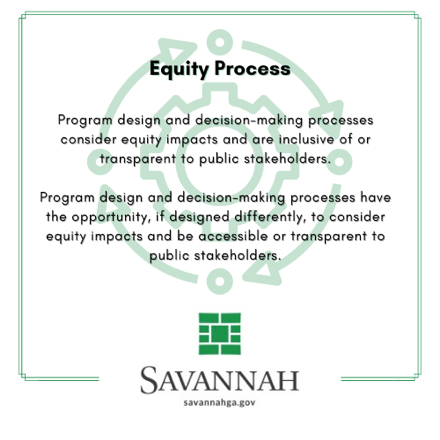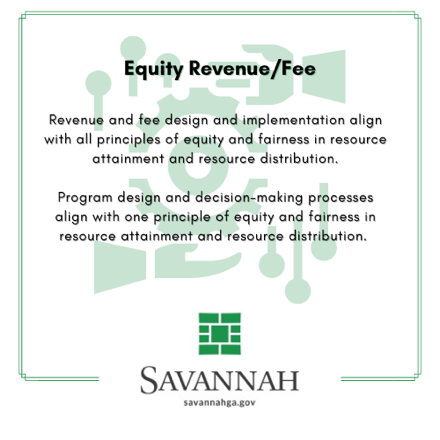Budgeting for an Equitable Future
- Ian McCormack

- Nov 2, 2021
- 3 min read
Local governments can have a lasting and significant impact on equity creation for all residents of their communities. The budget is one of the most powerful tools for influencing change. “The budget is, basically, the center of the government universe. It’s where decisions about what’s important get funded,” said Mike Mucha, Director of Research, GFOA in an October 2021 Governing article. However, the budget, as we have always done it, limits conversations and communication. The conversion from a line-item driven budget to a program budget opens communication and decision-making pathways enabling equity opportunities at all service levels.

An organization's success at aligning policy and goals with equity depends on its clarity of purpose when defining equity. ResourceX recently partnered with Results for America and GFOA to work with a cohort of cities on the What Works Cities City Budgeting for Equity and Recovery (CBER) program, through which select cities endeavored to define equity for their community and align resources accordingly through Priority Based Budgeting.
Some inspiring stories from the CBER cohort include: the City of Austin's work to define what equity means to their community; the work the City of Savannah did to communicate the different ways equity impacts their citizens; and the way the City of Pueblo applied equity to the application of their American Rescue Plan Act funds.
City of Austin
The City of Austin worked with ResourceX to identify a custom set of attributes against which each of their 55 programs within the Arts & Culture Division could be evaluated to determine equity alignment. Their program evaluation process focused on enhancing equity and expanding revenue-generating opportunities. Through a ResourceX facilitated insight workshop, Austin identified 65 opportunities, with 17 directly tied to achieving equity goals.
City of Savannah
The City of Savannah realized that they needed to divide their equity assessment into two different definitions: one to do with process and another addressing revenue and fees.
Cities should strive to achieve explicit equity goals not only through spending programs, but also by evaluating, and when necessary, reforming the methods through which they raise revenue in the first place. This includes a closer look at the equitable reform of taxes, fines and fees.
City of Pueblo
The City of Pueblo applied the PBB scoring methodology to the assessment of their ARPA proposals by creating a unique scoring matrix to evaluate all proposals against. Per Treasury guidance, and as a strong focus from the city in general, they made equity a primary focus in their evaluation process. In addition to their ARPA strategy, Pueblo also participated in a facilitated ResourceX insight workshop utilizing a new equity definition for their community, two new equity scoring categories and unique equity scoring metrics.

Although the equity goals of various organizations are different, they all share a vision for change, which is a direction that will lead to more significant systemic changes. If local government is simply a collection of programs offered to meet its stated policies, then programmatic changes can be the vehicle for systemic change.
When cities convert their line-item budgets to program budgets, they can better understand the services they provide and the actual costs of delivery. The data integrated into the program offers so many lenses through which departments, leadership, elected officials and citizens can evaluate the programmatic impact and communicate their needs and wants.
Local government success can only be defined as the ability to provide services and programs fairly and equitably to all citizens. Local governments can enter a new era in citizen-focused governance by focusing on equity. This includes setting clear equity goals and objectives, understanding individual program impact on equity outcomes, adapting existing programs, starting new programs, and securing funding within the budget for equity-focused programs. Determining what equity means to your community is essential in determining if your service delivery is meeting that goal.
You can discover ResourceX tools, support, webinars, products + case studies by visiting their site at https://www.resourcex.net.












Comments